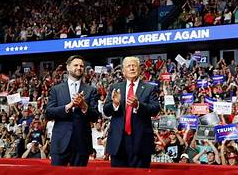A hillbilly elegy for Kyiv.
In early February 2022, JD Vance, then a modest candidate in the Republican Senate primary, made a bold and controversial statement. When asked about the situation in Ukraine, he responded, “I got to be honest with you, I don’t really care what happens to Ukraine one way or the other.” Having previously been intrigued by his political ambitions, especially after reading his book Hillbilly Elegy, this remark caused me to reconsider his seriousness in national politics. It was one thing to disagree on how to handle Putin’s aggression, but outright dismissing a major international crisis seemed disqualifying.
However, Vance’s comments did not seem to harm his political career. Within a week of the interview, Russia invaded Ukraine, and for a brief moment, I thought Vance’s lack of concern for Ukraine would cost him. Instead, he won the Ohio Senate seat in November 2022. Fast forward to July 2024, and Vance was selected as Donald Trump’s vice-presidential candidate. Given Trump’s age, Vance could soon become president, either by succession or in the next election. His rise has been marked by his ongoing indifference to Ukraine’s fate, a position he has maintained since his 2022 statement.
Vance’s political trajectory, despite his dismissive attitude towards Ukraine, speaks to a broader shift within American politics. The Republican Party, particularly under Trump’s influence, has increasingly embraced a more isolationist stance, with certain figures, including Vance, showing little interest in foreign policy matters that don’t directly affect the U.S. This shift could have significant implications for Ukraine’s future support, especially if a Trump-Vance administration were to prioritize domestic issues over international alliances.
For many Ukrainians, the possibility of a Trump-Vance presidency raises serious concerns about the future of American support for Ukraine. While Trump’s rhetoric on Ukraine has been inconsistent, Vance’s position is far clearer: his indifference to Ukraine’s survival reflects a broader skepticism about U.S. involvement in foreign conflicts. If they come to power, the duo might very well abandon Ukraine in favor of more inward-looking policies, possibly undermining the Western alliance that has been vital in countering Russia’s aggression.
In the broader context, Vance’s rise is a reminder of how quickly the political landscape can change, even when figures make statements that would have once been considered disqualifying. His ascent within the Republican Party reflects the increasing prominence of isolationist and America-first policies that could leave Ukraine vulnerable at a critical time. Should this trend continue, it could signal a major shift in U.S. foreign policy priorities, with consequences not only for Ukraine but for global geopolitics as well.

